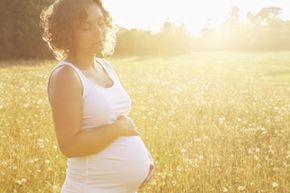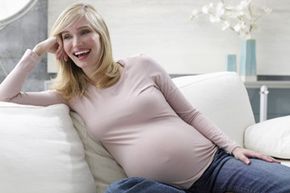Many women say they experience a heightened sense of smell during pregnancy, which can make perfumes and other things smell different than before pregnancy -- and often not in a good way. In fact, some studies link morning sickness in part to the powerful sniffer that kicks in early in pregnancy. But what's to blame for this super-smeller and the change in the way perfume is experienced? And is wearing perfume in any way harmful to mother- or baby-to-be? Let's take a look at some of the theories.
As with so many changes to a woman's body during pregnancy, a change in the way things smell can be attributed to hormones, specifically estrogen. Studies show that most women experience a heightened sense, rather than a lessening sense, of smell in the first trimester, often tapering off as the pregnancy progresses, and returning to normal after the baby is born.
Advertisement
One study looked at the wearability of odors and the fragrances pregnant women found most appealing. Pregnant women were more interested in wearing a musky almost urine-like fragrance and less likely to want to wear a spicy scent, than their non-pregnant counterparts. Pregnant women also found the rose aroma less appealing than non-pregnant women, but more appealing as a wearable fragrance.
Many women also report changes in body odor when they were pregnant. This is backed up by several studies that show a variety of reasons for more or different body odor. The primary reasons include hormones (again), weight gain and an increase in body temperature, both of which can cause an increase in sweat production, and some foods, such as onions or garlic. This change in natural body odor can cause your favorite perfume to smell differently as it combines with your different smells.
Now that you know why you may be reacting differently to perfume while pregnant (can you say hormones?), let's take it to the next level. The next page looks at pregnancy and perfume aversion.
Advertisement



